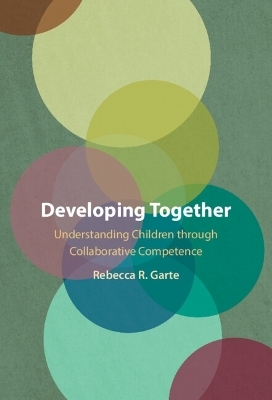
Developing Together
Cambridge University Press (Verlag)
978-1-009-44669-3 (ISBN)
Developing Together challenges systematic biases that have long plagued research with marginalized populations of children. It traces the unexamined assumptions guiding such research to definitions of subjectivity and the psyche based in Western cultural norms. The book provides alternative paradigms, applying a comprehensive methodology to two unique schooling contexts. Through this new approach children's development can be seen as an interactive, collaborative process. The chapters highlight how theoretical assumptions directly influence research methods and, in turn, affect educational practices. Unique in its provision of a detailed alternative method for conducting research with children, the book explains how the study of collaborative competence would influence education and applied fields. It is an essential resource for researchers in developmental psychology, educators, and policymakers alike.
Rebecca R. Garte is Professor of Teacher Education at the City University of New York (CUNY), who has published extensively in the areas of developmental psychology and teacher education. As a recipient of a large-scale grant from the W. K. Kellogg Foundation, she led the comprehensive educator empowerment program, a multi-year research practice partnership with New York City public schools.
Part I. Collaborative Competence in Pursuit of a Culturally Valid Account of Social Development: 1. Why a new direction is necessary; 2. Can the self be relational? Culture at the root of psychology; Part II. Elements of Collaborative Competence: Expanding on Prior Research: 3. Redefining subjectivity and intersubjectivity for a new method; 4. Framing intersubjectivity during children's interactions: a critical examination of theories and methods; 5. What makes for 'high quality' interactions at home and school; 6. Collaborative competence: A new model of development; Part III. A New Theory and Method for Assessing Development via Collaborative Competence: 7. Capturing the complexity of collaborations in varied settings; 8. Principles for a developmentally and culturally valid methodology; 9. Analyzing components of collaborative competence during preschooler free play; 10. Collaborative competence during early elementary playful learning activities; Part IV. Implications for Theory, Research and Practice: 11. Making the shift to interactivity in education and psychology; 12. A theoretical home for the role of collaborative competence in education.
| Erscheinungsdatum | 27.04.2024 |
|---|---|
| Zusatzinfo | Worked examples or Exercises |
| Verlagsort | Cambridge |
| Sprache | englisch |
| Maße | 160 x 235 mm |
| Gewicht | 560 g |
| Themenwelt | Schulbuch / Wörterbuch |
| Geisteswissenschaften ► Psychologie ► Entwicklungspsychologie | |
| Geisteswissenschaften ► Psychologie ► Sozialpsychologie | |
| ISBN-10 | 1-009-44669-X / 100944669X |
| ISBN-13 | 978-1-009-44669-3 / 9781009446693 |
| Zustand | Neuware |
| Informationen gemäß Produktsicherheitsverordnung (GPSR) | |
| Haben Sie eine Frage zum Produkt? |
aus dem Bereich


